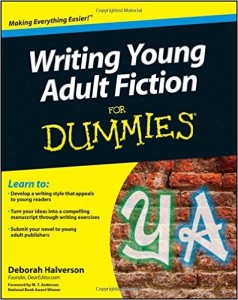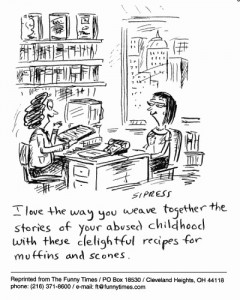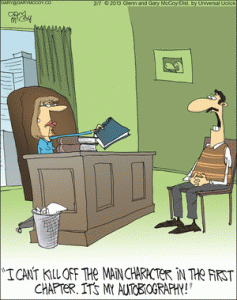How to find the right freelance editor for your book or novel
By Mayra CuevasThis weekend, while attending the Atlanta Writers Conference, several writers asked me about my experience working with a freelance manuscript editor. Many told me they had considered this approach but were uncertain about the process. They also questioned whether the financial investment would yield any real benefit.In August I sent my contemporary YA manuscript to freelance editor Deborah Halverson, the award-winning author of Writing YoungAdult Fiction for Dummies, founder of DearEditor.com and former books editor with Harcourt Children’s Books. Her services for substantive editing included providing feedback on overall voice, plot, pacing, characterization, setting, etc. Before hiring Deborah, I had written two full manuscripts. I had worked on my YA contemporary manuscript for 18 months and had done multiple revisions. I had sought feedback from my critique group and beta readers. I had also pitched the manuscript to a small group of agents and while I received several requests for a full manuscript the overall response was that the story still needed work.I reached that point: I had no idea how to fix my own story. I knew then, it was time to hire a freelance editor.
Before hiring Deborah, I had written two full manuscripts. I had worked on my YA contemporary manuscript for 18 months and had done multiple revisions. I had sought feedback from my critique group and beta readers. I had also pitched the manuscript to a small group of agents and while I received several requests for a full manuscript the overall response was that the story still needed work.I reached that point: I had no idea how to fix my own story. I knew then, it was time to hire a freelance editor.
As a journalist, I work with editors on a regular basis. My thirteen year career schooled me in the joys of having an editor take a jackhammer to my story. I learned that staying open to feedback is the only way of taking a story from good to great, from average to memorable.

To find the right editor, I asked my Atlanta writing colleagues for references. I received some recommendations and proceeded to contact them.My search was focused on three main factors:• Professional editing experience in the YA fiction market• A reasonable set rate• A connection to my story and my main characterI carefully vetted my options. I was most impressed by Deborah’s response to the introductory materials I emailed her. She was excited about my story and she understood the YA market. I knew within a few email exchanges that she could help me take my story to the next level.A week after I sent her my full manuscript, I received a 10 page editorial letter and a marked manuscript.The editorial letter addressed everything from big picture characterization and plot to punctuation and grammar. Deborah touched on specific items that could be revised, gave detailed examples and offered possible solutions. The tone of her letter was positive and encouraging, which was the icing on the cake!I have integrated all of Deborah’s suggestions into my manuscript. The result has been a more layered story, a stronger plot and deeper complexity in characters. In the process I learned about my own writing style and the craft techniques that I needed to develop.Writers looking to hire a freelance editor should know: 1) Wait until you have the best possible version of your manuscriptTo get the most bang for your buck when you hire a freelance editor, first you must put in the work. Revise your draft until it feels like it is the best possible version of the story that you can create. Then incorporate feedback from critique partners and beta readers. When you feel you have nothing more to add, then it is time to work with someone who can offer a fresh perspective. 2) The cost can be considerableSubstantive or developmental editing can cost upwards of a thousand dollars for the full manuscript. During my search for an editor I received a proposal for $3,000. If cost is a big consideration, some editors offer partial editing, meaning that you can request them to edit a number of chapters instead of the full manuscript.  3) Stay open to the editor’s feedbackA big part of the process of working with a professional editor is being open to implementing their suggestions. After all, you are paying them for their honest feedback.This openness will come in part from the knowledge that you have chosen to work with an editor who has professional book editing experience and is familiar with your genre. The more confident you feel about their abilities, the easier it will be to trust their advice.Resist the temptation to push back or dismiss any suggestions, even if they can seem overwhelming. 4) Don’t get overwhelmedA good approach to working with an editor’s feedback is to break the editorial letter down into smaller action items. Don’t think of the whole manuscript, instead begin working one scene at a time. Ask yourself, what changes do I need to make on this one scene? Consult your editorial checklist and then start revising. After you have revised all your scenes, it will be easier to step back and think of manuscript as a whole.If you are looking for a starting point, here are a few freelance editors that others recommended:
3) Stay open to the editor’s feedbackA big part of the process of working with a professional editor is being open to implementing their suggestions. After all, you are paying them for their honest feedback.This openness will come in part from the knowledge that you have chosen to work with an editor who has professional book editing experience and is familiar with your genre. The more confident you feel about their abilities, the easier it will be to trust their advice.Resist the temptation to push back or dismiss any suggestions, even if they can seem overwhelming. 4) Don’t get overwhelmedA good approach to working with an editor’s feedback is to break the editorial letter down into smaller action items. Don’t think of the whole manuscript, instead begin working one scene at a time. Ask yourself, what changes do I need to make on this one scene? Consult your editorial checklist and then start revising. After you have revised all your scenes, it will be easier to step back and think of manuscript as a whole.If you are looking for a starting point, here are a few freelance editors that others recommended:
- Deborah Halverson - award-winning author of Writing Young Adult Fiction for Dummies, founder of DearEditor.com, former books editor with Harcourt Children’s Books
- Tamson Weston - former Senior Editor at Disney Hyperion, picture book author and editorial consultant
- Robin Cruise - former Publisher at becker&mayer! and Managing Editor/Deputy Publisher at Harcourt Children's Books, author of middle grade fiction and picture books
- Vicki Adang - former Senior Editor at Wiley, Mark My Words Editorial Services
If you are looking for a freelance editor database, you can check out:
- Editorial Freelancers Association - offers a directory of skilled editorial professionals
- Reedsy - this site helps authors collaborate with expert editors, book designers and marketers.
Good luck in your search! ***UPDATE: I have an agent!!! Whoop! Whoop!Read all about it here:http://mayracuevas.com/how-i-got-my-fairy-godmother-or-what-some-call-a-literary-agent/